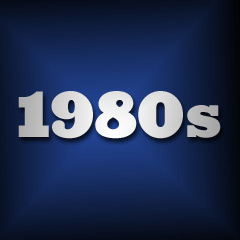
|
![]()
Greatest Films of the 1980s
1980 | 1981 | 1982 | 1983 | 1984 | 1985 | 1986 | 1987 | 1988 | 1989
Title Screen Film Genre(s), Title, Year, (Country), Length, Director, Description 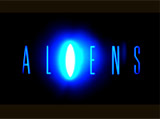



Aliens (1986), 137 minutes, D: James Cameron



The Assault (1986, Netherlands) (aka De Aanslag), 144 minutes, D: Fons Rademakers
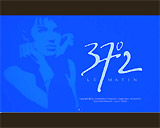



Betty Blue (1986, Fr.) (aka 37.2 Le Matin), 121 minutes, D: Jean-Jacques Beineix





Blue Velvet (1986), 120 minutes, D: David Lynch
Screenwriter and maverick director David Lynch's artistically bizarre, controversial, disturbing, off-beat cult film explored the corrupt, malevolent under-side of small town Americana in the mid-1980s. Blue Velvet was an original look at sex, violence, crime and power under the peaceful exterior of suburbia. Beneath the familiar, peaceful, 'American-dream' cleanliness of the daytime scenes (with the eponymous white picket fence) lurked sleaziness, prostitution, unrestrained violence, and perversity - powerful and potentially-dangerous sexual forces that might be unleashed if not contained. Often criticized for its depiction of aberrant sexual behavior, the surrealistic, psychosexual film was a throwback to art films, 50s B-movies and teenage romances, film noir, and the mystery-suspense genre. Following the collapse of his father in a colorful opening sequence, college boy Jeffrey Beaumont (Kyle MacLachlan) returned to middle-class hometown Lumberton, where he found a severed human ear in an overgrown vacant field. With the help of an innocent, sweet high school teenager Sandy Williams (Laura Dern), he investigated the bizarre mystery of the ear, finding himself involved (and participating) in a frightening, nightmarish world of voyeurism, violent sex, perversion, drug-addiction, and depraved degradation. He encountered nightclub singer Dorothy Vallens (Isabella Rossellini) (who repeatedly sang Bobby Vinton's "Blue Velvet") enslaved by her sadistic, demoniacal, obscenity-shouting, sexual tormentor and drug-dealer Frank Booth (Dennis Hopper), who psycho-sexually blackmailed her while holding her husband and child hostage.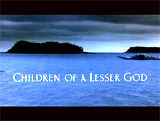


Children of a Lesser God (1986), 119 minutes, D: Randa Haines


The Color of Money (1986), 119 minutes, D: Martin Scorsese


"Crocodile" Dundee (1986), 102 minutes, D: Peter Faiman
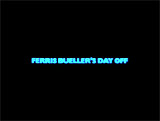

Ferris Bueller's Day Off (1986), 103 minutes, D: John Hughes
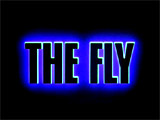

The Fly (1986), 100 minutes, D: David Cronenberg
This was one of the rare examples of director David Cronenberg's big-budget, mainstream Hollywood filmmaking. With gory and visceral special effects added, he remade the classic B-horror film from 1958 about how science and technology had caused dangerous human mutations. Eccentric, hapless scientist Dr. Seth Brundle (Jeff Goldblum) accidentally merged himself at a molecular-genetic level with an ordinary housefly during a teleportation incident using an experimental telepod device. As a newly deformed man-fly creature named Brundlefly, the creature struggled to maintain an emotional relationship with his pregnant lover/girlfriend, a magazine reporter named Veronica "Ronnie" Quaife (Geena Davis). In a famed "Insect Politics" speech, he warned Veronica to leave and never come back because he might hurt her. In the film's modified ending, a truly devastating and poignant conclusion, the anguished and completely disfigured 'Seth' wordlessly begged Veronica to kill him by guiding a shotgun's muzzle to his body with a deformed claw - a mercy killing to end his monstrous life.


Hannah and Her Sisters (1986), 106 minutes, D: Woody Allen
Woody Allen's masterful, insightful comedy/drama about contemporary New Yorkers. This episodic film is full of vignettes woven together, and features some of the sharpest direction and writing of Allen's career. The threaded-together, multiple storylines, very typical of an ensemble film, focus on the lives of three sisters during a traditional Thanksgiving dinner gathering: the eldest sister - homemaker and 'matriarch' Hannah (Mia Farrow), the neurotic middle sister - actress Holly (Dianne Wiest in an Oscar-winning performance), and the emotional, free-spirited Lee (Barbara Hershey), and their relationships in mid-life crisis. There are other fully-developed characters all playing out their neuroses and lives: Hannah's ex-husband Mickey (Woody Allen) who has a despairing obsession with death, illness, and unhappiness; older and cynical Soho artist Frederick (Max Von Sydow) who lives with Lee; Hannah's adulterous, financial accountant husband Elliot (Michael Caine, also in an Oscar-winning role), who has a torrid but shallow love affair with Lee behind Hannah's and Frederick's backs; and Holly's desperate struggle to prove herself to the world. Even the peripheral characters are believable: the sisters' embittered show business parents (Maureen O'Sullivan and Lloyd Nolan), Holly's best friend and rival April (Carrie Fisher), as well as Mickey's assistant and voice of reason Gail (Julie Kavner). Although considered by some to be Allen's best work, it lost to Oliver Stone's Platoon (1986) for Best Picture.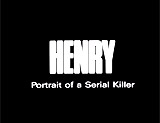



Henry: Portrait of a Serial Killer (1986) (released in 1990), 90 minutes, D: John McNaughton
The crime spree in this highly-controversial, low-budget and notorious movie, made with a cinema-verite documentary style, was loosely based on real-life murderer Henry Lee Lucas. There were over a dozen sickening, brutally-violent killings by psychotic serial killer Henry (Michael Rooker). Interspersed in the gritty film's action were still shots (death poses) of his trail of carnage in Illinois, sometimes with accompanying sounds of victims' screams or death struggle. The most upsetting and disturbing murder was the videotaped killing of a helpless family of three in their suburban home, videotaped for repeated viewings by both Henry and his roommate and partner in crime Otis (Tom Towles) as entertainment.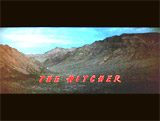

The Hitcher (1986), 96 minutes, D: Robert Harmon



Manhunter (1986), 119 minutes, D: Michael Mann


Manon of the Spring (1986, Fr./It./Switz) (aka Manon Des Sources), 113 minutes, D: Claude Berri
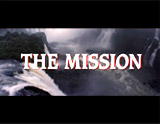



The Mission (1986, UK), 126 minutes, D: Roland Joffe




Mona Lisa (1986, UK), 104 minutes, D: Neil Jordan



Nine 1/2 Weeks (1986), 117 minutes, D: Adrian Lyne



Platoon (1986), 111 minutes, D: Oliver Stone
A harrowing, visceral, realistic, visually-shattering Vietnam-war film, a Best Picture-winner based on the writer/director's own first-hand knowledge as a Vietnam combat soldier. Young, naive, 19 year-old enlisted infantry soldier Chris (Charlie Sheen) served in Vietnam in a fragmented, schizoid, rifle platoon/troop under two radically-different, veteran officers: pot-smoking, compassionate Sgt. Elias (Willem Dafoe) and boozing, fierce Sgt. Barnes (Tom Berenger). In the violence of combat, the two 'good' and 'bad' sergeants clashed, forcing Chris to examine his own loyalty and perspective toward violence. The first film in Vietnam veteran Oliver Stone's Vietnam trilogy, followed by Born of the Fourth of July (1989) and Heaven and Earth (1993).



Salvador (1986, UK/US), 123 minutes, D: Oliver Stone



She's Gotta Have It (1986), 85 minutes, D: Spike Lee
Black movie-making emerged in a stronger state in the mid-80s, with films from independent film writer-director-star Spike Lee. The influential African-American film-maker independently produced this R-rated low-budget feminist comedy, his debut feature film with unknown black performers. It won the Prix de Jeunesse award at Cannes, and helped to usher in the American independent film movement in the mid-1980s. Budgeted at about $175,000, Lee's film was reportedly made in about two weeks with over-drawn credit cards. The hip romantic comedy was revolutionary in its tale of liberated, sexually-voracious graphic artist Nola Darling (Tracy Camilla Johns), a free-thinking, upscale black Brooklynite who juggled disparate boyfriends in a three-way love triangle to provide herself with different emotional and sexual needs, filmed in Rashomon-like style.

Sherman's March (1986) (aka Sherman's March: A Meditation on the Possibility of Romantic Love in the South During an Era of Nuclear Weapons Proliferation), 157 minutes, D: Ross McElwee
Native Southerner Ross McElwee wrote and directed this self-indulgent, hypnotic sleeper hit about his own modern retracing of General Sherman's destructive route through the South during the Civil War. It followed his leisurely, meandering portrait of the South and a collection of quirky Southerners living there. With previous failed relationships on the mind of the middle-aged, unmarried, lonely documentarian (with recurring dreams of nuclear war), he was mostly searching for romantic love - and continually sidetracked and drawn to interviewing scene-stealing potential mates with his movie camera instantly establishing rapport. Cute Pat Rendleman (Herself), an optimistic, open-minded and sunny female, performed cellulite crunches (without underpants), described strange screenplay ideas, and aspired to be an actress in a Burt Reynolds film. It was a novel film for its time, although reality TV and the proliferation of video journals has already made this kind of first-person, non-fiction approach very commonplace. He mused in his personal documentary: "It seems I'm filming my life in order to have a life to film...filming has become the only way that I can relate to women."


Something Wild (1986), 113 minutes, D: Jonathan Demme



Stand By Me (1986), 87 minutes, D: Rob Reiner
This nostalgic, seminal coming-of-age film, mostly told in flashback, was based on Stephen King's 1982 short story The Body, originally published in his 4-novella collection titled Different Seasons. It was director Rob Reiner's first real hit film, paving the way for his future success. The bittersweet film opened with voice-over narration by the Writer (Richard Dreyfuss) - introducing a flashback to the late 1950s: "I was 12 going on 13 the first time I saw a dead human being. It happened in the summer of 1959 - a long time ago." He poignantly recollected his friendships in an inseparable quartet of young schoolboy buddies during their hiking adventures in Oregon, including their quest for a rumored, missing dead body, and their dodging of a locomotive on a bridge trestle. It ended with the Writer lamenting: "I never had any friends later on like the ones I had when I was twelve. Jesus, does anybody?" Author King happily regarded the film as the first successful translation of any of his works.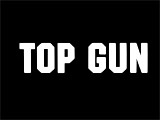




Top Gun (1986), 110 minutes, D: Tony Scott
The perfect film for wannabe armchair aviators who want to see Tom Cruise in his first mega-star role reflecting his close-to-life cocksure persona. As grinning top fighter pilot Lt. Pete 'Maverick' Mitchell in flying school for elite top guns, Cruise fell for civilian astrophysics instructor Charlotte 'Charlie' Blackwood (Kelly McGillis), while attracted to rival adversary air-ace 'Iceman' (Val Kilmer). Besides the thin glossy love-plot and comic-book tone (all the nicknamed characters), the feverishly-choreographed film served as a recruitment tool for the USAF and its boy-toy fighter jets, and became the quintessential joy-ride action film of the 1980s, with death-defying, competitive dog-fight action in aerial sequences and a loud, pumped-up pop music soundtrack.